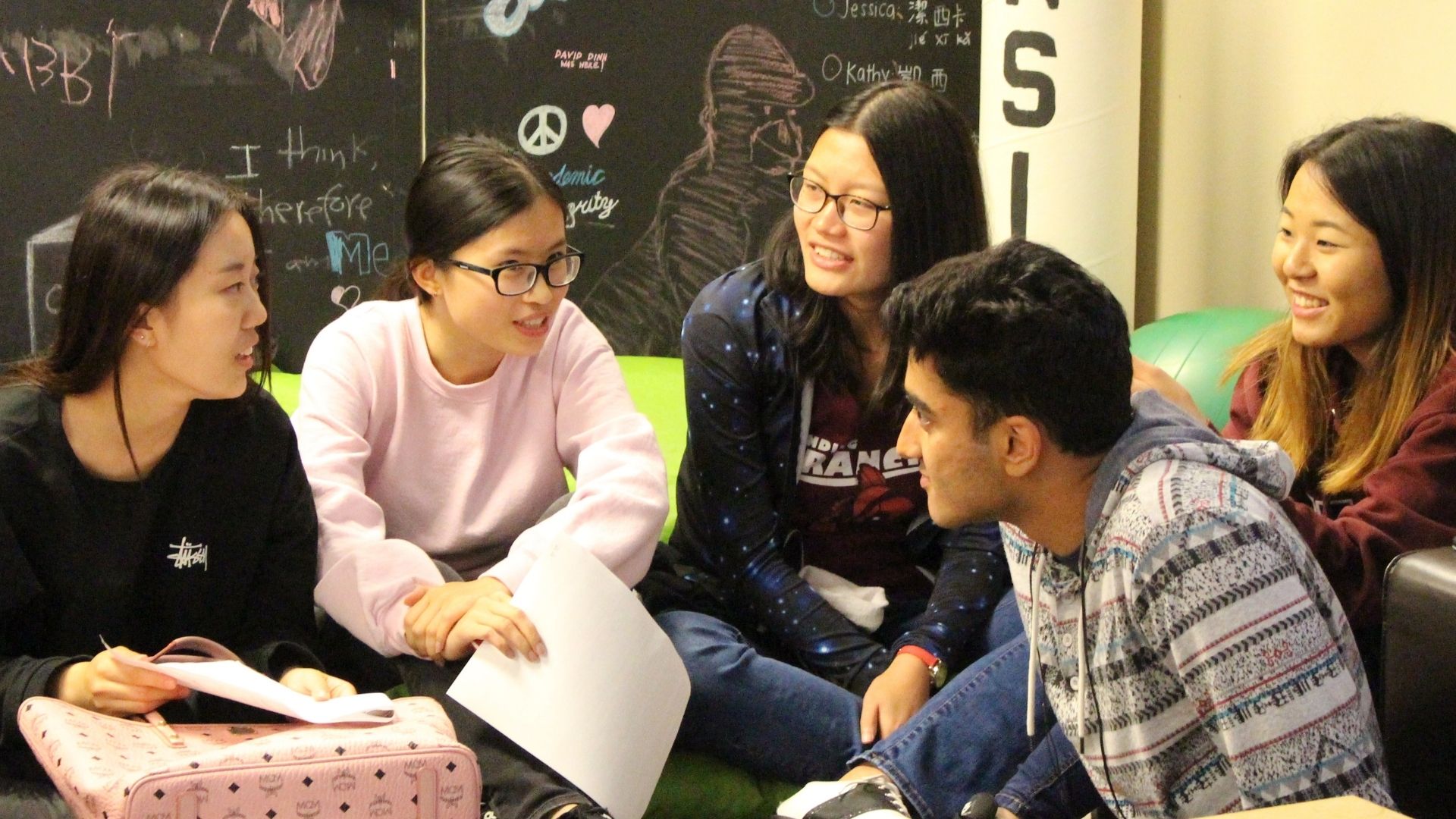U.S. universities expect students to work with honesty and integrity, and avoid all forms of academic dishonesty.
July 2019

Integrity Peer Educators at University of California San Diego educate students on ethics and advise students who have been reported for academic integrity violations. Photograph courtesy University of California San Diego.
Thousands of students dream of studying in the United States, home to some of the world’s best higher education institutions. But some of them often underestimate the workloads, the deadlines and the examination routines. The demanding environment might tempt some to sacrifice integrity—in other words, to cheat or indulge in unethical behaviors like plagiarism, collaborating on assignments meant to be done alone and buying term papers online.
Students cheat for a variety of reasons, notes Tricia Bertram Gallant, director of the Academic Integrity Office at the University of California San Diego(UCSD)Academic Integrity Office at the University of California San Diego (UCSD) and an expert on integrity and ethics in education. These include the “pressure to obtain a university degree in order to have a secure livelihood, the contract cheating industry, and ignoring the problem for too long by many schools, colleges and universities around the world. The Internet has made it easier,” she says. “And students sometimes make bad decisions.”
Academic integrity is defined by the International Center for Academic Integrity (ICAI) as a commitment, even in the face of adversity, to the six fundamental values of honesty, trust, fairness, respect, responsibility and courage. ICAI is a consortium of learning institutions, founded to combat cheating, plagiarism and academic dishonesty in higher education. The organization also helps cultivate cultures of integrity in academic communities across the world. It says, “Promoting the fundamental values of academic integrity in education requires balancing high standards of integrity with the educational mission, as well as compassion, and concern.” At UCSD and other U.S. universities, it is fundamental, says Bertram Gallant.
“Academic integrity is so important because it means that you will experience a fair education and your degree will be an honest, respectable and trustworthy symbol of your knowledge and skills. Without integrity, there can be no education or learning,” she says. “Why do so many international students choose to study in America? Because the market value of American university degrees is high, and the reason it is high is because of integrity.”
While UCSD has a rigorous program to promote and enforce academic integrity, Bertram Gallant notes that its objectives extend far beyond the time students spend on campus.
“With an emphasis on academic integrity,” she says, “universities are developing professionals and leaders who will continue to act with integrity and create fair, respectful, responsible, honest and trustworthy organizations and relationships. A true democratic society can only exist if the majority of people and organizations act with integrity.”
UCSD encourages those who witness cheating to respond by interrupting the behavior, redirecting the person to more ethical choices, engaging others for help or reporting it to authorities. But, while violations carry consequences, the program is educational rather than punitive, with an emphasis on “excelling with integrity.” Integrity Awards are given annually to campus community members who exemplify and promote academic, research and professional integrity.
Most students reported for cheating at UCSD take responsibility for their actions, Bertram Gallant notes, and are directed into an Integrity Mentorship Program. The 10-week program puts them in touch with educators, who help them explore strategies and techniques for achieving academic success with integrity. This approach, which requires the students to write essays explaining why they cheated and then complete several other assignments, can turn their experiences into positive “teachable moments.”
“Our point is that just because students make a bad decision and cheat once, it doesn’t mean that they are ‘bad persons,’ whom the university should expel,” says Bertram Gallant. “As educational institutions, universities have an ethical obligation to help students learn from their experiences.”
In guiding students on how to avoid the many potential pitfalls that violate academic integrity, she suggests applying three primary questions:
Most of all, Bertram Gallant notes, students should be proactive in determining what is and isn’t acceptable in terms of academic integrity.
“People who don’t ask questions are more likely to mess up,” she says. “They should assume things are going to be different here [at a U.S. university], do their homework to find out what’s expected of them and use the university’s resources to find answers to whatever questions they may have.”
Steve Fox is a freelance writer, former newspaper publisher and reporter based in Ventura, California.
COMMENTS